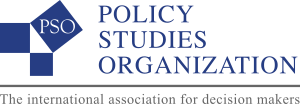
The 11th Annual Dupont Summit on
Science, Technology, and Environmental Policy
Friday, December 7, 2018
The Historic Quaker Meetinghouse
2111 Florida Ave. NW, Washington DC
8:15am
REGISTRATION WITH CONTINENTAL BREAKFAST
Food will be provided throughout the day at no cost
9:00-10:10am
ROOM 1
Eradicating Addiction, World Medical & Health Policy Symposium Issue Panel Moderator/Organizer: Bonnie Stabile, PhD Schar School of Policy and GovernmentGeorge Mason UniversityCo-Editor, World Medical & Health Policy
Policy Avenues to Address the Opioid Epidemic
William A. Hazel, Jr. MD, George Mason University,
Virginia Secretary of Health and Human Resources (2010-2018)
Addiction in the Constellation of Social Determinants of Health: Service Learning and Community Health Centers
Kimberly Bullock, MD and Marjorie Williams, MD, Georgetown University Department of Family Medicine
Gaps in Drug Treatment for Criminal Justice Populations: Lessons from Harris County, Texas
Katharine Neill Harris, PhD, Rice University’s Baker Institute for Public Policy
ROOM 2
Building a Human Firewall Through Cybersecurity Leadership and Policy
Mansur Hasib, University of Maryland University College
Meeting NSTA Preservice Science Teacher Standards with Online Science Courses and Non-Traditional Labs
Jim Brinson, American Public University System
ROOM 3
Mid-Atlantic Local Leadership Making Sustainable Waves
Sandra Leibowitz, Sustainable Design Consulting
Distinguishing Leadership of Information Assurance Teams
Bamidele A. Bankole
10:20-11:30am
ROOM 1
Eradicating Addiction, World Medical & Health Policy Symposium Issue Panel
Moderator/Organizer: Bonnie Stabile, PhD Schar School of Policy and GovernmentGeorge Mason UniversityCo-Editor, World Medical & Health Policy
Reducing Harm Through Evidence-based Alcohol Policies:
Challenges and Options
Linda M. Bosma, PhD, Bosma Consulting, LLC
Trauma as the Source of Addiction
Heather Hagaman, MA and Maryam Ovissi, MA, Beloved Yoga
The Effectiveness of Time-Limited Psychotherapy Among Youths with Substance Use Disorders Receiving Community-Based Treatment: A Systematic Review
Ignatius Nnamdi Ijere, PsyD, CADC, Syracuse University
ROOM 2
Effectively Leveraging Technology and Innovation in the Management Virtual Cybersecurity Teams
Darrell Norman Burrell, Florida Institute of Technology and Claremont Lincoln University
Educating the Internet of Things (IoT) Users on Cybersecurity Risks
Calvin Nobles, New America
ROOM 3
Smart Transportation Update: Revolutionizing Today’s Office
Kandis Boyd Wyatt, American Public University System
Wanda Curlee, American Public University System
Oliver Hedgepeth, American Public University System
11:40-12:50pm
ROOM 1
Bridging Digital, Knowledge, and North-South Divides
Organizer: Connie L. McNeely, George Mason University
Moderator: Ester Sztein, National Academy of Sciences (U.S.)
Panelists:
The Automation Divide
Laurie A. Schintler, George Mason University
Using Smart Cities Technology to Improve the Lives of Disadvantaged Inner-City Residents
Gerrit-Jan Knaap, University of Maryland
Global Science Indicators: Examining Mobility and Scientific Leadership with Bibliometrics
Cassidy R. Sugimoto, National Science Foundation (U.S.)
Bridging Digital and Knowledge Divides in the World Polity: Contexts and Perspectives
Erik W. Kuiler, George Mason University
ROOM 2
Education & Workforce/Naval STEM in the Emerging Context of the Dept. of Education and Workforce
Michael Simpson, Office of Naval Research, Dir. Education & Workforce/Naval STEM
Cesar Padilla, Penn State University
Kathleen Miranda, Office of Naval Research, Deputy Education & Workforce/Naval STEM
Ericka Rojas, Office of Naval Research
Chrissy Grassman, Office of Naval Research
ROOM 3
Exploring the Use of Community of Practices (CoP) in Disrupting Health Care Delivery: Telemedicine and Telehealth as a Civic Responsibility to Ensure High-quality Care
Kim L. Brown-Jackson, Claremont Lincoln University and Global Health Access Institute
Darrell N. Burrell, Claremont Lincoln University and Global Health Access Institute
Clishia Taylor, American Health Care Professionals and Global Health Access Institute
1:00-2:10pm
ROOM 1
The Dark Web: Access, Network Evolution, Economics, and Implications for Policy
The Basics of Tor and Live Demo on How to Access
Dyllon Thomas, UNC Charlotte
Evolutionary Network Structures in the Dark Web
Liz Johnson, UNC Charlotte
An Overview of the Economics of the Dark Web
John Watson, UNC Charlotte
Tracing the Untraceable: AI Network Inference for the Dark Web and Crypto Privacy Coins
Percy Venegas, Economy Monitor
The Dark Web: Security Policy Implications in Health Care & Financial Institutions
Prasun Bhattacharyya, MedCall
Predator Prey Model of the Dark Web
Chad Wilson, UNC Charlotte
ROOM 2
Access Control Best Practices: Effectively Determining a Well-managed and Implemented Cybersecurity Governance Strategy
Sharon L. Burton, Grand Canyon University and Claremont Lincoln University
Digital Hoarding: A Creation of a Framework
Stanton Jackson and Cameron White
ROOM 3
Structuring Realities: How Laser Scanning and Reality Capture Are Remaking the World
Rebecca Perry, University of Virginia
2:20-3:30pm
ROOM 1
Current Issues in Opioid and Psychoactive Substance Abuse
Introduction to the Global Crisis
Arnauld Nicogossian, George Mason University
Illicit Drug Trafficking Crisis and Interventions
Guadalupe Correa-Cabrera, George Mason University
US Policies and Standards of Practice for Overdose and Preventing Morbidity and Mortality
Richard S. Williams, Three Rivers District, Virginia Department of Health
ROOM 2
New Frontiers of the Digital Creative World
Marketing Love of Country? Images of Militarism, Nationalism, and Patriotism in the Digital Economy
Renée Marlin-Bennett, Johns Hopkins University
Art and the Global in Digital Spaces
J.P. Singh, George Mason University
Measuring Soft Power in the International System: Cultural Festivals and International Education
Irene Wu, Georgetown University
ROOM 3
Assessing Science and Technology in Congress: Time for a New Office of Technology Assessment (OTA)?
Kathy Wagner Hill, Johns Hopkins University
Kevin Kosar, R Street Institute
Zach Graves, Lincoln Network
Yuri Beckleman, Congressman Mark Takano’s Office
Berin Szoka, TechFreedom
Promising New Scholars in Policy & Complexity
3:40-5:30pm
ROOM 1
Balancing Data Security and Public Security in Applications That Use End-to-end Cryptography
Thomas Woods, UNC Charlotte
On Hacking Alexa: Emerging Penetration Testing Methodologies
Hunter Healy, UNC Charlotte
Exploring the Future of AI Policies and Practices
Temitope Aladenika, UNC Charlotte
Influence of Advanced A.I. on Misinformation
Taylor Wilson, UNC Charlotte
An Exploration of the Existence and Implications of One-Way Functions
Almir Omerspahic, UNC Charlotte
Quantum Computers: Policy and Complexity
Dustin Rickert, UNC Charlotte
ROOM 2
Regulation of Social Media
David Konopka, UNC Charlotte
Predator Prey Model of the Dark Web
Chad Wilson, UNC Charlotte
Economics of the Dark Web
John Watson, UNC Charlotte
Ethical Dilemma of Animal Testing in the Cosmetics Industry
Michelle Thomas, UNC Charlotte
Stereotypes and Their Effects on Academic Performance
Nicholas Matherley, UNC Charlotte
AI: Friend or Foe?
Dyllon Thomas, UNC Charlotte
EVENING SESSION
8:00pm
As part of a Lecture Series organized by the Philosophical Society of Washington
NSF’s Ten Big Ideas
Advancing the Frontiers of Science and Engineering
Dawn Tilbury, National Science Foundation
*The John Wesley Powell Auditorium is adjacent to the Cosmos Club, 2170 Florida Ave NW, Washington DC, 20008. It’s a 3 minute walk from the Quaker Meetinghouse. Entrance is through the Cosmos Club gate, which is the first right-hand entrance on Florida Avenue, north of the intersection with Massachusetts Avenue. The entrance to the Auditorium itself is to the left of the gate.
